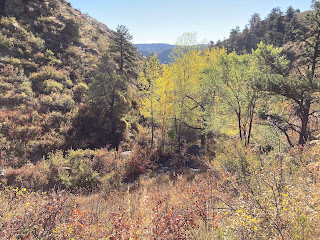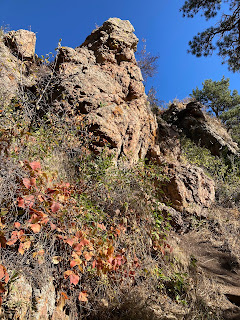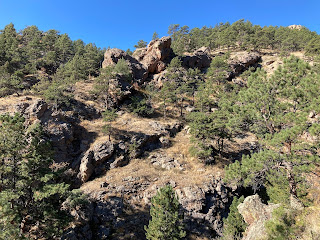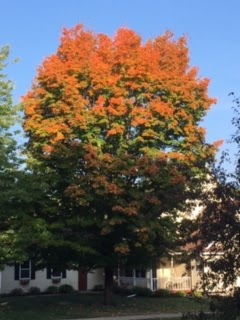 Diary of a Young Naturalist. Dara McAnulty. Little Toller Books (2020). 224 pages. Genre: Non-fiction.
Diary of a Young Naturalist. Dara McAnulty. Little Toller Books (2020). 224 pages. Genre: Non-fiction.
First Line: "In the darkness my dreams are interrupted."
Summary: Following the seasons, Dara McAnulty chronicles a year in his life. He is a young man, fourteen years old, who lives with his mum, dad, brother and sister in Northern Ireland. Dara is also autistic. His diary tells of his family life, the time he spends in nature, and the way he processes the world.
My thoughts: From the beginning, I could tell that Dara was a young man who has read and been read to. His writing is beautiful and lyrical.
Dara comes from a family of people with Autism. His mother, brother and sister are all autistic. The good news is that because his mother is autistic, she knows exactly what is going on inside the kids. She is able to prepare them for whatever is coming their way and often does. I was amazed at the insight Dara has in regards to his mother and how she is feeling and that he even noticed. They have a wonderful, intentional home life and I loved hearing about it.
One of the ways the family spends their time is by being outside in nature. This has created a love for the natural world in Dara. He says this about himself:
"I have the heart of a naturalist, the head of a would-be scientist, and bones of someone who is already wearied by the apathy and destruction wielded against the natural world."
His connection to the natural world helps him make sense of the world. He says that he doesn't always understand people, but the natural world always makes sense and gives him a feeling of peace.
This was a fascinating, well-written book that allowed me to visit Northern Ireland, learn something about how someone with Autism processes the world and gain a deeper appreciation for the natural world.
Quotes:
"Whether it's bioluminescence or the combustion of methane, it's wonderful to let the mind wander off with banshees and will-o'-the-wisps - folklore and stories are so often inspired by the strange and beautiful in the natural world, and all these stories bring nature, deeply, into our imagination."
"I do love these stories [Celtic Mythology]. They enrich my life as a young naturalist. Science, yes, always science. But we need these lost connections, they feed our imagination, bring wild characters to life, and remind us that we're not separate from nature but part of it."
"Noticing nature is the start of it all. Slowing down to listen, to watch. Taking the time, despite mountains of homework. Making a space in time to stop and stare, as the Welsh poet W. H. Davies wrote in 'Leisure':
What is life if full of care,
We have no time to stop and stare.
No time to stand beneath the boughs
And stare as long as sheep and cows.
No time to see, when woods we pass,
Where squirrels hide their nuts in grass.
I don't see it as 'leisure though. This is good work. Heart work. Taking the time to observe nature, to immerse oneself in its patterns, structures, happenings and rhythms. It's how mathematicians and scientists are nurtured."




















